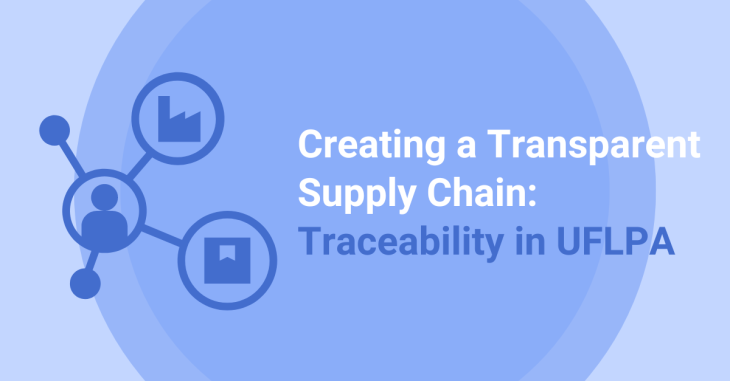Creating a Transparent Supply Chain: Traceability in UFLPA

In an era where corporate responsibility and ethical business practices take center stage, setting up transparency in the supply chain is not just a best practice; it’s a necessity. Our commitment to Uyghur Forced Labor Prevention Act (UFLPA) compliance is rooted in the belief that transparency is the cornerstone of a responsible and sustainable business.
Supply Chain Transparency and Traceability
Understanding the origin of materials and products within your supply chain is imperative. It’s not just a procedural formality; it’s a powerful tool to combat forced labor and uphold human rights.
Technology, such as blockchain and supply chain management software, can enhance transparency and traceability in supply chains. This can help companies trace the origin of materials and products, ensuring compliance with the UFLPA by preventing the use of forced labor in the supply chain.
Regular Reporting and Transparency Communication:
Establish a system for regular reporting on supply chain practices and transparency efforts. Communicate transparently with stakeholders, including investors, consumers, and regulatory bodies, about your commitment to ethical sourcing and compliance with the UFLPA.
Implement Due Diligence Processes:
Develop and implement due diligence processes to check and assess suppliers’ compliance with the UFLPA. This may include regular audits, inspections, and the use of technology for tracking and verifying information.
Learn more about UFLPA:
Embark on the journey towards a more ethical supply chain. Download our insightful white paper to explore the transformative potential of technology in achieving UFLPA compliance.


